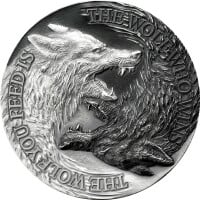| National Factbook |
| Flag: |

|
| Nation Name: |
Valtoria |
| Leader Name: |
Victor |
| Currency: |

Valto |
| National Animal: |

Lion |
| History: |
The history of Valtoria dates back centuries, with tales of ancient kings and noble warriors laying the foundations of the kingdom. Legends speak of a sacred artifact, the Crown of Valtoria, said to grant wisdom and power to the rightful ruler.
The early years of Valtoria were marked by fierce conflicts with neighboring kingdoms, striving to expand their territories and consolidate their power. However, under the wise guidance of its monarchs, Valtoria successfully defended its borders and maintained its independence.
Over time, Valtoria flourished, becoming a hub of art, culture, and education. The kingdom became renowned for its academies and universities, attracting scholars and artists from across the realm. It also became a center for trade, with its merchants venturing far and wide to establish profitable connections with other lands.
The golden age of Valtoria is often associated with the reign of King Aldric the Great. During his rule, the kingdom experienced unprecedented prosperity, advancements in architecture, and the flourishing of the arts. The royal court became a place of grandeur and refinement, attracting nobles, diplomats, and artists from distant lands.
However, like any kingdom, Valtoria faced its share of challenges. It weathered times of political unrest and external threats from rival nations seeking to exploit its resources. Valtoria’s strength always lay in the unity of its people and the determination of its monarchs to protect the land and its inhabitants.
In recent times, under the rule of King Victor, Valtoria has focused on promoting diplomacy and fostering alliances. The kingdom has become a haven for peace talks and international forums, earning a reputation as a fair and neutral mediator.
Valtoria’s future holds great promise. With its rich history, vibrant culture, and steadfast leadership, the kingdom stands poised to continue thriving and making a positive impact on the world. |
| Geography |
| Continent: |
Africa |
| Land Area: |
24,622.90 sq. km |
| Terrain: |
The terrain of Valtoria is diverse and captivating, encompassing a range of landscapes that add to the kingdom's allure. Here are some prominent features of Valtoria's terrain:
1. Majestic Mountains: Valtoria is blessed with towering mountain ranges that cut across the landscape. These mountains are often crowned with snow-capped peaks, presenting a breathtaking sight. The jagged cliffs and deep valleys provide a natural barrier and add to the kingdom's natural defenses.
2. Enchanting Forests: Valtoria is known for its lush and verdant forests that cover vast expanses of land. These enchanting woodlands are home to an assortment of flora and fauna, including ancient trees, vibrant flowers, and elusive creatures. The forests exude a sense of magic and mystery, inviting adventurers and nature enthusiasts alike.
3. Serene Lakes and Rivers: Numerous lakes and rivers adorn the land, sparkling under the sunlight. These water bodies snaking through Valtoria provide a serene backdrop, offering a respite from the bustling cities and towns. Fishing, boating, and water sports are popular recreational activities for both locals and visitors.
4. Fertile Farmlands: Valtoria benefits from fertile soil, making its farmlands highly productive. Fields of golden wheat, swaying cornstalks, and vibrant orchards yield a bountiful harvest. Agriculture plays a significant role in the kingdom's economy, providing sustenance to its people and supplying resources to neighboring lands.
5. Coastal Beauty: Valtoria boasts a lengthy coastline dotted with picturesque beaches, quaint fishing villages, and bustling ports. The crystal-clear waters of the sea, crashing against rocky cliffs, attract seafarers, sailors, and beach enthusiasts. The coastline also serves as a gateway for trade, with Valtoria establishing thriving maritime connections.
6. Arid Deserts: In the southern reaches of Valtoria, stretches of arid deserts can be found, with vast dunes and shimmering heat. These desolate lands present a stark contrast to the otherwise vibrant landscapes. The deserts hold a sense of mystery and are occasionally traversed by brave explorers in search of hidden treasures or lost secrets.
The diverse terrain of Valtoria adds to its allure, captivating travelers and locals alike with its natural beauty and varied ecosystems. These landscapes not only provide stunning visuals but also offer resources, recreational opportunities, and an abundance of wildlife, making Valtoria a land of wonder and discovery. |
| Highest Peak: |
Mt Veradel,
4 meters
|
| Lowest Valley: |
Victorious valley,
-865 meters
|
| Climate: |
different regions, influenced by its diverse terrain. Here is an overview of the general climate patterns observed in Valtoria:
1. Mountainous Regions: The higher elevations of Valtoria, characterized by its majestic mountains, experience a cooler climate. Summers tend to be mild and pleasant, with temperatures averaging around 15 to 25 degrees Celsius (59 to 77 degrees Fahrenheit). Winters, however, can be cold, with temperatures frequently dropping below freezing and snowfall being common.
2. Forested Areas: The forested regions of Valtoria often have a temperate climate. Summers are generally warm, with temperatures ranging from 20 to 30 degrees Celsius (68 to 86 degrees Fahrenheit). Winters are cooler but not as extreme as in the mountains, with temperatures typically ranging from 0 to 10 degrees Celsius (32 to 50 degrees Fahrenheit). Rainfall is relatively abundant throughout the year.
3. Coastal Areas: Valtoria's coastal regions enjoy a milder climate due to the tempering effect of the nearby sea. Summers are moderately warm, with temperatures averaging around 25 to 35 degrees Celsius (77 to 95 degrees Fahrenheit). Winters are mild, with temperatures ranging from 10 to 20 degrees Celsius (50 to 68 degrees Fahrenheit). These areas also receive a fair amount of rainfall, especially during the autumn and winter months.
4. Desert Regions: The southern desert areas of Valtoria experience a dry and arid climate. Summers are scorching hot, with temperatures often soaring above 40 degrees Celsius (104 degrees Fahrenheit). Winters can still be warm, with temperatures ranging between 15 to 25 degrees Celsius (59 to 77 degrees Fahrenheit). Precipitation in the desert regions is scarce, leading to arid landscapes and limited plant life.
Overall, Valtoria offers a mix of climates, ranging from the cool mountainous regions to the moderate coastal areas and the hot deserts. These variations provide residents and visitors with a range of weather conditions to experience and enjoy. |
| People & Society |
| Population: |
593 people |
| Demonym: |
Valtorian |
| Demonym Plural: |
Valtorians |
| Ethnic Groups: |
Valtorians - 78.4%
European - 14.5%
African - 7.1% |
| Languages: |
English - 64.5%
Latorian - 32.3%
Afrikaans - 7.1% |
| Religions: |
Valtorian Paganism - 14.4%
Christianity - 25.4%
The Creed - 78.0% |
| Health |
| Life Expectancy: |
8400 years |
| Obesity: |
11.4% |
| Alcohol Users: |
83.4% |
| Tobacco Users: |
43.4% |
| Cannabis Users: |
26.2% |
| Hard Drug Users: |
4.6% |
| Economy |
| Description: |
Mixed Economy: Valtoria could have a mixed economy, where both the private sector and the government play significant roles in economic activities. This type of economy allows for a balance between market forces and government intervention, fostering both private enterprise and public welfare. |
| Average Yearly Income: |
$84.98 |
| Gross Domestic Product (GDP): |
$647,965,405.00 |
| GDP per Capita: |
$1,090,955.37 |
| Gross National Income (GNI): |
$421,969,565.00 |
| Industries: |
Technology and Innovation: Valtoria could prioritize the development and growth of its technology sector. This could include areas such as software development, telecommunications, artificial intelligence, and robotics. With a focus on innovation, Valtoria may encourage research and development, attracting tech companies and startups to establish a presence in the country.
2. Tourism and Hospitality: Valtoria's natural beauty, historical landmarks, or cultural attractions may make tourism and hospitality a significant industry for the country. Valtoria could invest in infrastructure, accommodations, and marketing to attract domestic and international travelers, thereby generating revenue and creating jobs.
3. Agriculture and Natural Resources: If Valtoria has fertile land or abundant natural resources, it may prioritize the agriculture and resource-extraction industries. Valtoria might focus on developing sustainable farming practices, promoting local produce, or exploring responsible resource extraction methods to ensure long-term economic viability.
4. Manufacturing and Export: Valtoria could establish a strong manufacturing industry, producing goods for both domestic consumption and export. By focusing on specific sectors such as automobiles, electronics, or textiles, Valtoria may attract foreign investments and boost its export potential.
5. Financial and Banking Services: If Valtoria aims to position itself as a regional financial hub, it may emphasize the growth of its financial and banking services industry. Valtoria could focus on developing its banking infrastructure, promoting fintech companies, and attracting global financial institutions.
6. Renewable Energy and Sustainability: Valtoria might prioritize the development and adoption of renewable energy sources, signaling a commitment to environmental sustainability. Industries such as solar, wind, hydroelectric power, and green technology could drive economic growth while reducing reliance on non-renewable resources. |
| Military |
| History: |
Threat to the Royal Family: In Valtoria, a group or faction opposed to the reigning royal family and seeking to seize power attempts a coup d'état. This threat prompts the royal family to take action and establish their own armed forces to protect their rule and maintain stability in the country.
2. Rapid Mobilization: In response to the coup attempt, the royal family quickly mobilizes their loyal supporters, military officers, and other influential figures to establish the armed forces. This may involve drawing personnel from existing security forces, hiring mercenaries, or recruiting volunteers.
3. Leadership Appointments: The royal family appoints commanders and high-ranking officers to lead the armed forces. These individuals might have proven their loyalty to the monarchy and demonstrated military expertise.
4. Unit Formation: The armed forces are organized into units, including infantry, cavalry, artillery, and specialized branches such as intelligence or special operations. Training and equipping these units could be a challenging task, especially under the urgent circumstances of a coup attempt.
5. Counter Attack: With their armed forces established, the royal family launches a counteroffensive against the coup plotters. This could involve a combination of military operations, intelligence gathering, and diplomatic efforts to gather support from loyalists, neighboring countries, or international allies.
|
| Soldiers: |
0 |
| Tanks: |
0 |
| Aircraft: |
0 |
| Ships: |
0 |
| Missiles: |
0 |
| Nuclear Weapons: |
0 |
| Last Updated: 10/16/2023 09:58 am |
















